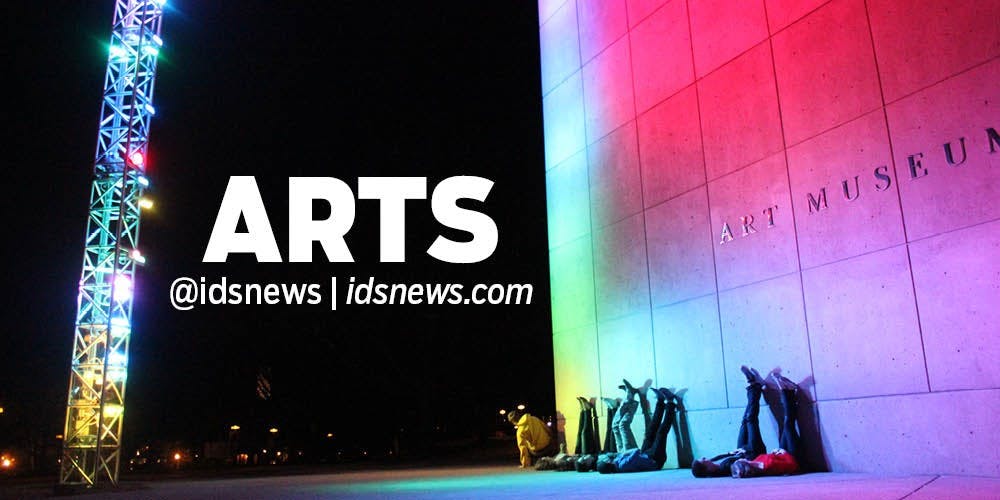Performance artist Holly Hughes stood before a portrait of her younger self projected on the screens behind her during a lecture Tuesday evening in Maxwell Hall.
The black-and-white postcard on the screen captured Hughes dressed in a suit and staring at the camera with a deadpan expression. The caption read, “Ms Gay Pride 1983.”
38 years later, Hughes doesn’t look all that different. She still wears a suit — navy blue and silver this time — and a deadpan expression. The biggest thing that’s changed is the streak of pink running through the playwright’s hair.
“Of course I’m still young, but time has passed,” Hughes said to the audience. “For you, not for me.”
Hughes spoke about her challenges and successes as a performer, playwright, comedian, visual artist and teacher.
She has won awards for her raunchy, controversial pieces, such as the play “The Well of Horniness,” currently in rehearsals for performance on Sept. 30 at the IU Wells-Metz Theatre, and the solo performance “Clit Notes: A Sapphic Sampler.”
“It’s gotten easier to be, for the most part, a cisgender lesbian in this country as a white person,” Hughes said. “But it hasn’t gotten easier to be an artist.”
She highlighted her time in the 1980s with the Women’s One World Café, a historical theater organization for queer women and transgender artists in New York City. She said there was a spirit of radical acceptance within the WOW community.
“Feminism at that time was dominated by an anti-porn sensibility and had silenced and sidelined sexual exploration,” Hughes said. “But we found a home for sexual exploration.”
Although she isn’t part of the LGBTQ community, IU freshman Lauren Fox said she is passionate about queer activism as an ally. She said more people should attend similar events as allies even if they might not directly identify as LGBTQ.
“If I’m actually learning and hearing different perspectives, it’s easier for me to understand,” Fox said.
Alicyn Warren, IU music professor and Hughes’s personal friend, said she enjoys Hughes’s layered perspectives as an openly queer person and vocal feminist.
“I really love the humor that she brings to topics that are challenging for people,” Warren said. “It’s like a way in for them — that it’s not threatening.”
Hughes also discussed experiences with censorship and prejudice when she lost her grant from the National Endowment for the Arts in 1990. On the basis of offensive subject matter, the NEA denied funding to Hughes and three other artists.
The artists later sued, and the “NEA Four” case eventually reached the Supreme Court. It sparked national debate and resulted in the NEA discontinuing funding for individual artists.
“I’d always expected to make provocative work,” Hughes said. “I didn’t expect to get death threats delivered to my home.”
Hughes ended her lecture with the story of how she decided to become an artist. She said she was a freshman in college, and she would listen to an art professor tell her class about the sculpture he had worked on for years.
“He turned his garage into a studio, and he’d be out there all night with cigarettes and whiskey, the jazz spilling out into the dark Michigan night,” Hughes said.
One night, she said he determined the problem: The sculpture was beautiful but not finished. So, he backed into it with his Jeep, and then he called it art, she said.
“I felt like I was everything in the story,” Hughes said. “I was the man, I was the cigarette, I was the whiskey, I was the jazz, I was the dark Michigan night, and I was the sculpture that needed to be broken in order to shine with that difficult truth we call art.”






